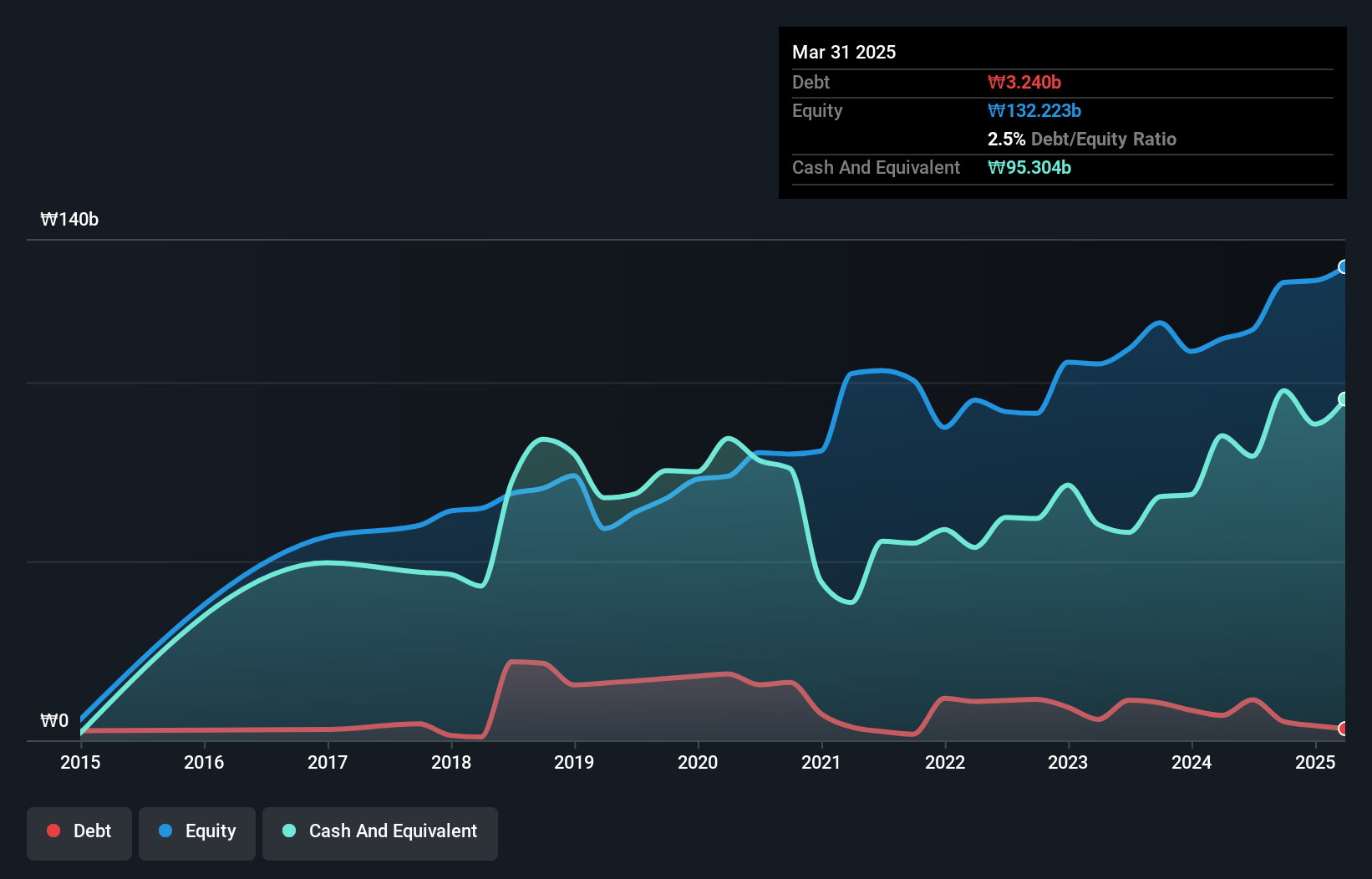- South Korea
- /
- Professional Services
- /
- KOSDAQ:A204620
Is Global Tax Free (KOSDAQ:204620) Using Too Much Debt?
Warren Buffett famously said, 'Volatility is far from synonymous with risk.' So it seems the smart money knows that debt - which is usually involved in bankruptcies - is a very important factor, when you assess how risky a company is. As with many other companies Global Tax Free Co., Ltd. (KOSDAQ:204620) makes use of debt. But the real question is whether this debt is making the company risky.
What Risk Does Debt Bring?
Generally speaking, debt only becomes a real problem when a company can't easily pay it off, either by raising capital or with its own cash flow. In the worst case scenario, a company can go bankrupt if it cannot pay its creditors. However, a more common (but still painful) scenario is that it has to raise new equity capital at a low price, thus permanently diluting shareholders. Of course, plenty of companies use debt to fund growth, without any negative consequences. When we think about a company's use of debt, we first look at cash and debt together.
What Is Global Tax Free's Debt?
As you can see below, Global Tax Free had ₩3.24b of debt at March 2025, down from ₩6.95b a year prior. But on the other hand it also has ₩95.3b in cash, leading to a ₩92.1b net cash position.

How Strong Is Global Tax Free's Balance Sheet?
The latest balance sheet data shows that Global Tax Free had liabilities of ₩39.5b due within a year, and liabilities of ₩4.48b falling due after that. Offsetting this, it had ₩95.3b in cash and ₩44.3b in receivables that were due within 12 months. So it actually has ₩95.5b more liquid assets than total liabilities.
It's good to see that Global Tax Free has plenty of liquidity on its balance sheet, suggesting conservative management of liabilities. Because it has plenty of assets, it is unlikely to have trouble with its lenders. Simply put, the fact that Global Tax Free has more cash than debt is arguably a good indication that it can manage its debt safely.
See our latest analysis for Global Tax Free
In addition to that, we're happy to report that Global Tax Free has boosted its EBIT by 94%, thus reducing the spectre of future debt repayments. When analysing debt levels, the balance sheet is the obvious place to start. But it is future earnings, more than anything, that will determine Global Tax Free's ability to maintain a healthy balance sheet going forward. So if you're focused on the future you can check out this free report showing analyst profit forecasts.
Finally, while the tax-man may adore accounting profits, lenders only accept cold hard cash. While Global Tax Free has net cash on its balance sheet, it's still worth taking a look at its ability to convert earnings before interest and tax (EBIT) to free cash flow, to help us understand how quickly it is building (or eroding) that cash balance. In the last two years, Global Tax Free created free cash flow amounting to 17% of its EBIT, an uninspiring performance. That limp level of cash conversion undermines its ability to manage and pay down debt.
Summing Up
While it is always sensible to investigate a company's debt, in this case Global Tax Free has ₩92.1b in net cash and a decent-looking balance sheet. And we liked the look of last year's 94% year-on-year EBIT growth. So is Global Tax Free's debt a risk? It doesn't seem so to us. There's no doubt that we learn most about debt from the balance sheet. However, not all investment risk resides within the balance sheet - far from it. For instance, we've identified 2 warning signs for Global Tax Free that you should be aware of.
At the end of the day, it's often better to focus on companies that are free from net debt. You can access our special list of such companies (all with a track record of profit growth). It's free.
New: Manage All Your Stock Portfolios in One Place
We've created the ultimate portfolio companion for stock investors, and it's free.
• Connect an unlimited number of Portfolios and see your total in one currency
• Be alerted to new Warning Signs or Risks via email or mobile
• Track the Fair Value of your stocks
Have feedback on this article? Concerned about the content? Get in touch with us directly. Alternatively, email editorial-team (at) simplywallst.com.
This article by Simply Wall St is general in nature. We provide commentary based on historical data and analyst forecasts only using an unbiased methodology and our articles are not intended to be financial advice. It does not constitute a recommendation to buy or sell any stock, and does not take account of your objectives, or your financial situation. We aim to bring you long-term focused analysis driven by fundamental data. Note that our analysis may not factor in the latest price-sensitive company announcements or qualitative material. Simply Wall St has no position in any stocks mentioned.
About KOSDAQ:A204620
Global Tax Free
Operates as tax refund company for foreign tourists in South Korea, Singapore, Japan, and France.
Flawless balance sheet and good value.
Market Insights
Community Narratives





